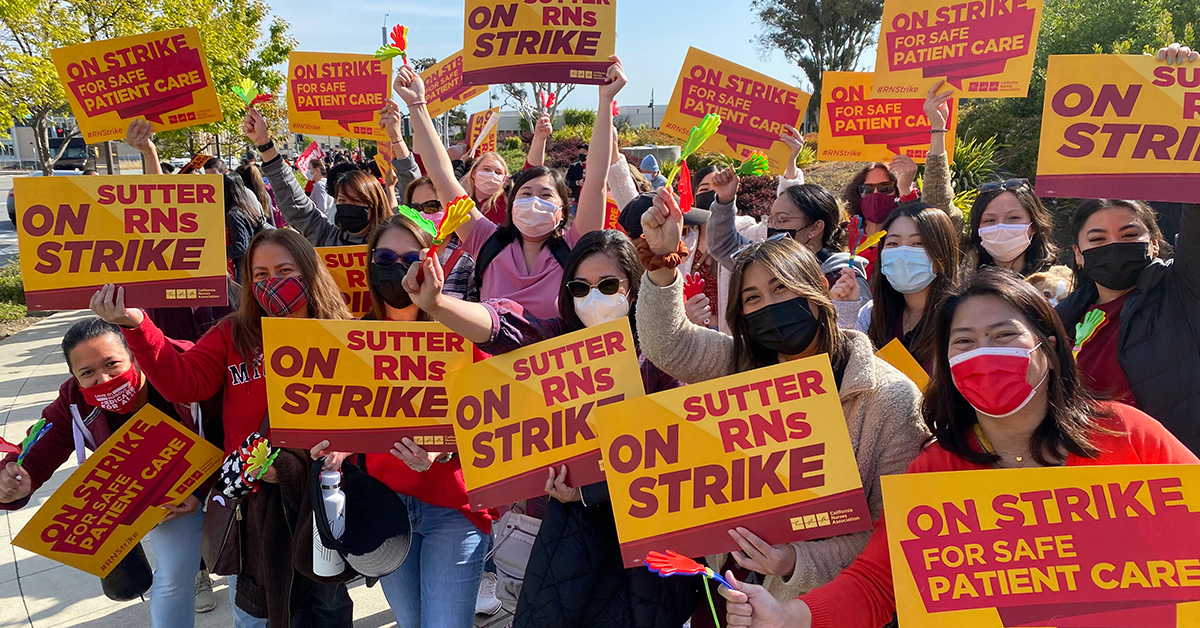Sutter RNs and health care workers hold one-day strike

More than 8,000 RNs and health care workers demand safe staffing
By Rachel Berger
National Nurse Magazine - April | May | June 2022 Issue
More than 8,000 registered nurses and health care workers at 15 facilities across Northern California held a one-day strike on April 18 to protest Sutter Health’s refusal to address their proposals about safe staffing and health and safety protections.
The members of the California Nurses Association and the Caregivers Healthcare Employees Union at Sutter have been in negotiations since June 2021 for a new contract, with little to no movement on key issues. They urge management to invest in nursing staff and agree to a contract that provides safe staffing that allows nurses to provide safe and therapeutic care and pandemic readiness protections that require the hospitals to invest in personal protective equipment stockpiles and comply with California's PPE stockpile law.
“The Sutter nurses voted for this strike,” said Renee Waters, a trauma neuro intensive care RN with 26 years of experience. “We are striking because Sutter is not transparent about the stockpile of PPE supplies and contact tracing. They resist having nurses directly involved in planning and implementation of policies that affect all of us during a pandemic. We must address these issues and more. A fair contract is needed to retain experienced nurses, have sufficient staffing and training, and ensure we have the resources we need to provide safe and effective care for our patients. Nurses are fighting back against Sutter putting profits before patients and health care workers.”
Nurses overwhelmingly voted to go out on strike because we see no other option left for us and our patients,” said Amy Erb, RN, who works in critical care at California Pacific Medical Center. “We have tried repeatedly to address the chronic and widespread problem of short staffing that causes delays in care and potentially puts patients at risk, but hospital administrators continue to ignore us. We have a moral and legal obligation to advocate for our patients. We advocate for them at the bedside, at the bargaining table, and if we have to, on the strike line.”
Rachel Berger is a communications specialist at National Nurses United.